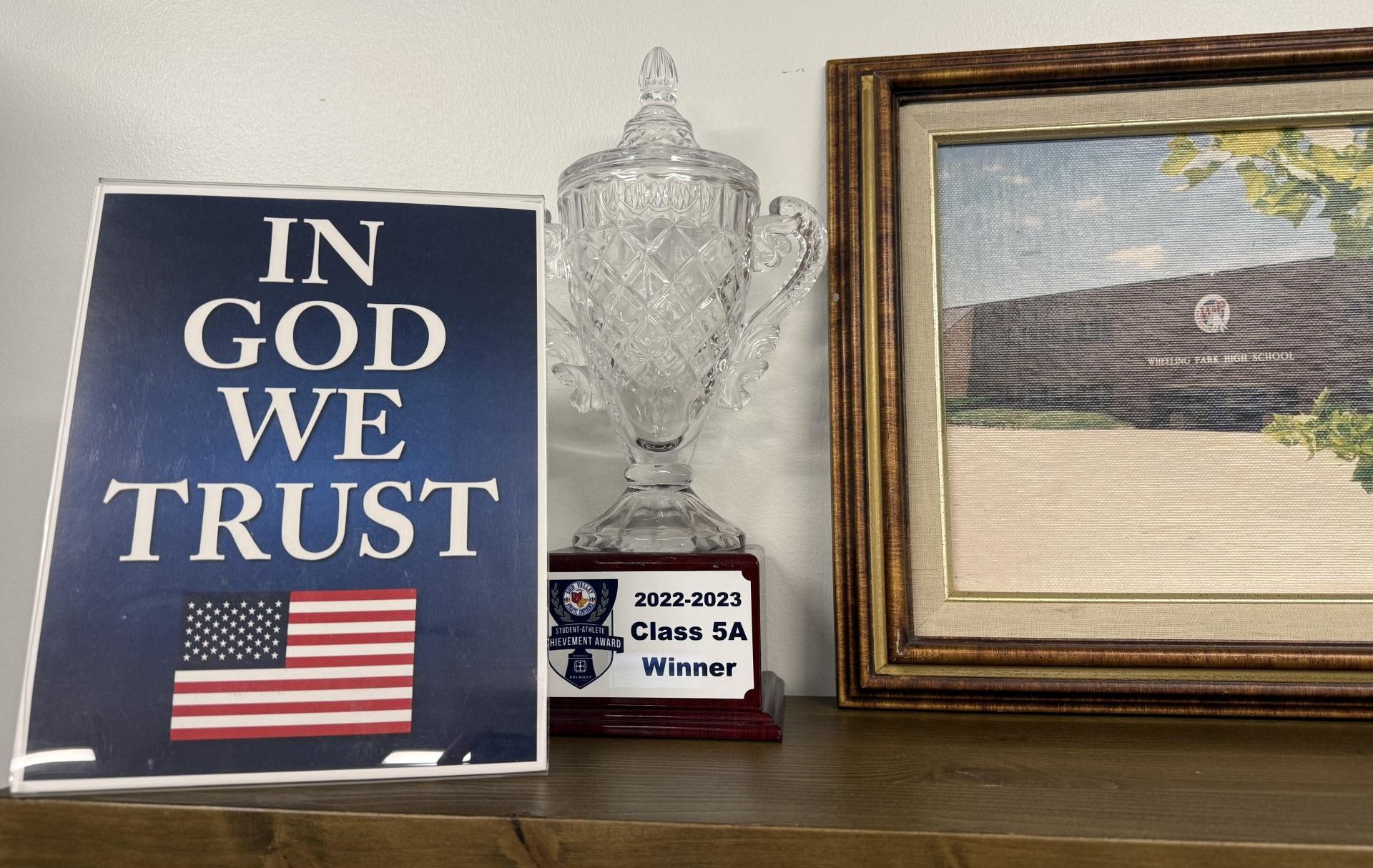Religion is a topic that continues to weigh heavily on public school systems throughout the United States.
But just recently, LifeWise Academy came to the Ohio County Board of Education to pitch their program to our board members. The pitch was rejected by the Ohio County Board of Education in a 3-2 vote. LifeWise is a Christian-based bible school that takes place during school hours. However, many question the legality of the program taking place.
“Programs such as that presented last Monday are entirely constitutional. Contrary to what
people continue to write on social media, the LifeWise program does not occur on school grounds
(if it did, it would be unconstitutional),” said Ms. Molly Aderholt, Ohio County Board of Education Member.
LifeWise is considered constitutional because these lessons take place off school property. The program is completely voluntary, and no student or parent is forced to be a member of or participate in such programs.
“In a ‘released time’ scenario, students may leave school premises (be signed out by parents, and therefore no longer be under supervision of the school) if their parents so desire, for religious instruction,” said Aderholt.
The First Amendment specifically protects religious freedom. Giving families the option to sign children out of school for a faith-based class is completely constitutional. In fact, the LifeWise program has been proven to be successful right across the river in Belmont County.
“They read a statement from an assistant superintendent in Belmont County describing how well the program works there, and addressing all of the logistical concerns that members of the Ohio County BOE raised,” said Aderholt.
The program would be a great asset in Ohio County for families who want their children to stay religiously involved, and choose to do so during school hours off school property. However, that isn’t the case.
“I thought the BOE should at least explore a policy and not deny parents the entirely voluntary option of having their children participate. The motion on the floor was for the Superintendent to create a draft rule, consistent with applicable law, related to released time, and for her to then bring that to the board for its consideration. This motion failed 2-3 – those voting in favor were Bernie Albertini and me; those
voting against were Mr. Croft, Mr. Garber, and Ms. Hercules,” said Aderholt.
The LifeWise program will not be making its way into the Ohio County Schools system – at least this year. The program does offer a great opportunity for families, but some do not agree. Aderholt sums it up in the best way herself.
“I believe a parent’s right to allow their children to participate in something like this, in a way that would not impact instructional time, is just that – their right, as supported by the WV Code and the First Amendment,” said Aderholt.
From the opposing side, Ohio County Board of Education Member Andy Garber had to look at things holistically.
“In order for us to allow this to happen, we would need to have a policy in place that specifies how something like this would be facilitated. The policy would have to be generic in scope and not be specific to only Lifewise, because to only allow Lifewise to do their thing could be construed as “arbitrary and capricious”. We would have to allow any request for students to leave school for religious classes (or possibly any classes),” said Garber.
Having a background in teaching and having been a principal, Garber sees the potential for students to fall behind. Instructional time would be interrupted because the the travel times for these out-of-school times. Also, many groups would be allowed to enter into this program because the policy would not only apply to LifeWise.
Transportation then becomes another issue.
“The chaos that would ensue if we had multiple groups pulling students out of school would be an organizational nightmare for the school. Not to mention the liability factor for transportation of students to and from the site,” said Garber. “Who would be responsible for that?”
Garber grew up in a religious family. His church was three doors down from his childhood home.
“I was very active in my church: youth leader, sang in the choir, taught Sunday school, and my minister had a huge impact on my life. He was a mentor to me. I totally believe the religious training I received helped shape my values and developed my character,” said Garber.
But Garber did not receive that kind of training through school. He got it outside of school. Many churches throughout Wheeling have great after-school programs that the school system works very well with.
Garber sums up his view:
“If parents believe that their child needs more religious training because the public schools aren’t offering any, they have options like enrolling them in parochial schools, other Christian schools, or homeschooling,” said Garber.
Programs like LifeWise Academy bring up another topic in schools nationwide: What role does religion play in schools?
Wheeling Park houses many faith-based clubs and organizations, such as the Fellowship of Christian Athletes and Students of the Kingdom.
Religion plays a role in many students’ day-to-day lives.
“As I have been walking in my faith, I have noticed a positive change in my actions. I am now not as quick to judge others, I am slower to anger, and I have become a more selfless person overall,” said Wheeling Park senior Sammie Ashmore.
Another faith-based program that takes place off campus is Wheeling Park’s YoungLife. YoungLife is a faith-based organization that aims to bring students around the world closer to the Lord. Through weekly group meetings, better known as campaigners, students interested in growing closer with the Lord come together to discuss the bible.
Having these religious-based practices in the Wheeling Park community seems to make a difference.
“I have noticed many ways religion or faith practices have impacted our school community. Since I am on the leadership team for the club FCA at Park, I see the ways that the club impacts our school. FCA gives students a community of people who also have the same values. I have also seen other faith-based clubs at Park shine their light on our school’s community as well,” said Ashmore.
Although staff cannot endorse or renounce faith-related discussions in school settings, there are potential downsides to those types of conversations. Students can be quick to argue when another student holds a different belief or view from their own. On the contrary, faith-related discussions open up a new perspective as to what’s happening in our world today.
Integration is key when it comes to these types of programs.
“I personally don’t have concerns with integrating faith-based programs into schools. These programs are optional to students; if they don’t want to participate in these programs, they do not have to. I think these programs would give some students more of a community since it was their choice to be involved,” said Ashmore.
Faith has played and will continue to play a major role in students’ lives. Although families in Ohio County do not have programs like LifeWise Academy for their children yet, students at Wheeling Park have many opportunities to strengthen their faith.







